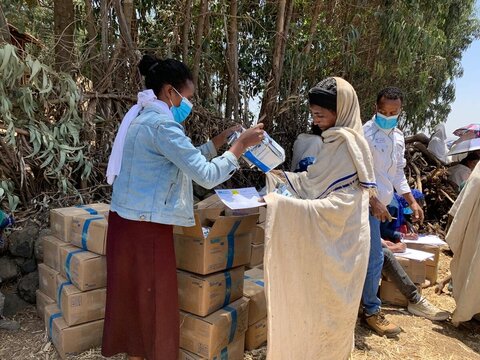Family displaced by war in Ukraine: ‘We left everything and just ran for our lives’
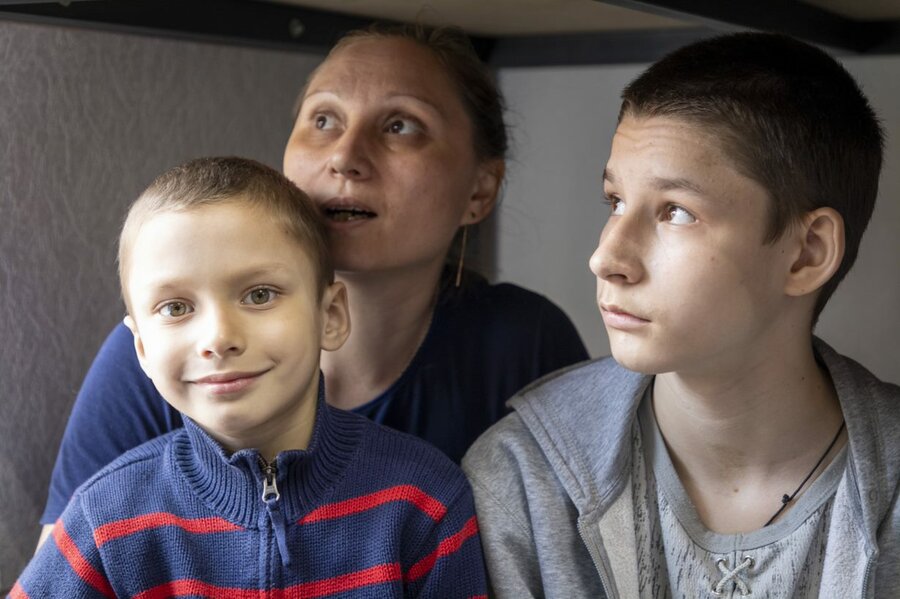
When Olexander and Liubov’s home in Kharkiv came under heavy shelling, they grabbed their two boys and rushed to the basement where they spent the entire night.
“We came out of the basement in the morning,” says Liubov. “When we saw what our backyard looked like, what it had turned into, we left instantly.”
The family now lives in the relative safety of a student dormitory in Poltava, 143 km away in central Ukraine, where they receive assistance from the World Food Programme (WFP).
War in Ukraine: WFP calls for ports to reopen as world faces deepening hunger crisis
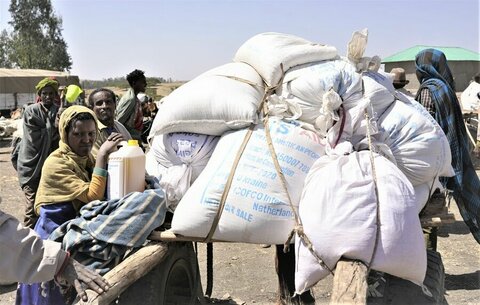
In the dorm are four beds, four chairs and a few clothes hanging up to dry. Around 100 other families here live in university housing which has been converted into a shelter for displaced people.
Two months into the conflict in Ukraine, nearly 14 million people have fled from their homes, in the world’s fastest-growing humanitarian crisis. A total 5.9 million people – mainly women and children – have sought refuge in neighbouring countries.
This is the largest movement of people since the Second World War. We have already reached 3.7 million people through in-kind food assistance and cash transfers.
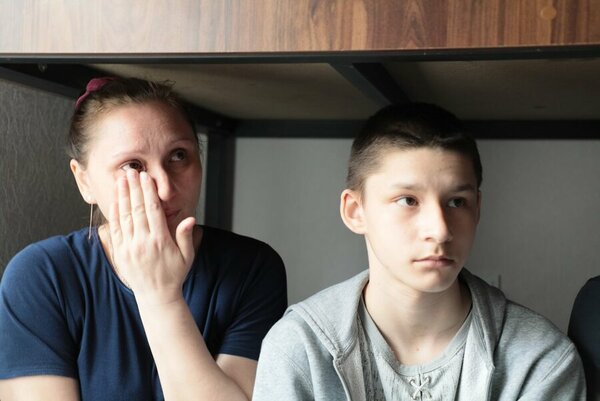
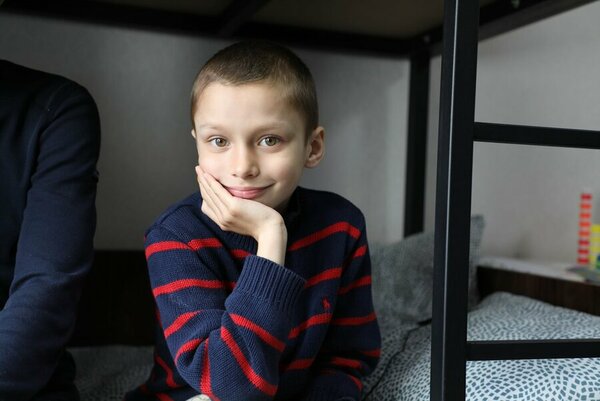
“The factory I worked at closed on 24 February, the day war started,” says Olexander. He has not earned any income since. Liubov, who worked at a nursery school, also lost her income. They held some hope that things would get better but they never did. So the family had to leave.
“We could only take our documents and very little clothing,” says Liubov. Kharkiv, Ukraine's second-largest city, has seen some of the worst bombardments since the start of the conflict in Ukraine.
Staff at the university, who volunteer to help, said classes had continued online but have no idea when work, and the dormitory the family are staying in, will go back to business as usual.
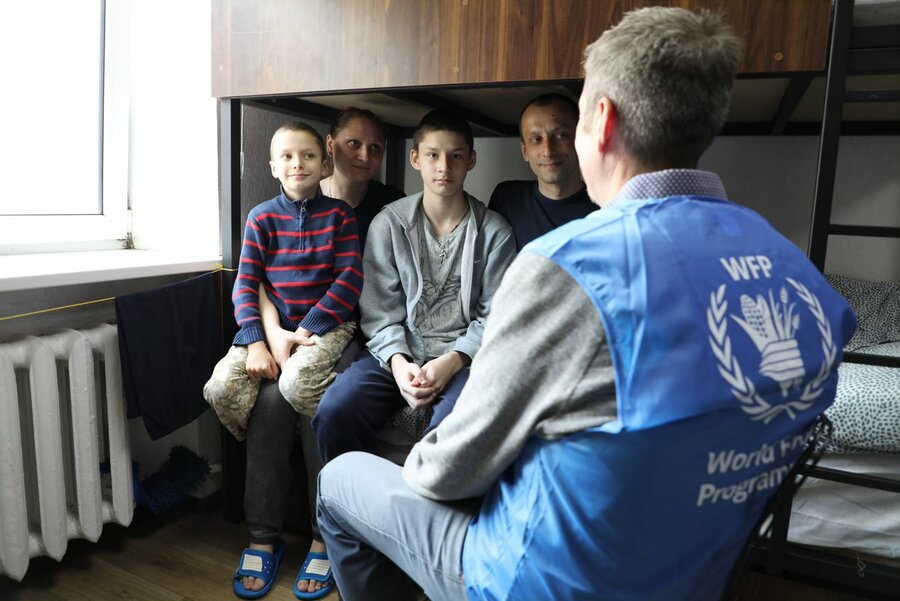
WFP provides a food ration of 17.5 kg for each family member per month. The food – distributed through WFP partner International Humanitarian Foundation (AICM) – includes pasta, canned meat, rice, and vegetable oil.
Across Ukraine, 8 million people have left their homes with next to nothing. Many have lost their jobs and their homes. No one knows when they will be able to return to their homes, if those homes are even still standing.
Monthly rations – like those provided to Olexander and Liubov – immediate food rations and cash assistance provide support in Ukraine. The money is given to vulnerable people who can use it to buy what they most need in their local markets.
WFP is also distributing wheat flour to bakeries in semi-encircled areas, such as in Kharkiv itself, to ensure these businesses continue to run and support food systems providing food for people in the most hard-hit areas.
Food and drinking water are already running out in encircled and semi-encircled cities in east Ukraine. And in some areas, going out to the food store – which may not even have stocks – is a risk.
“When the war broke out, everything closed, groceries and pharmacies were shut,” says Liubov. “There were a lot of volunteers who brought food for families with children as well as the elderly and people with disabilities.” She adds that grocery stores and pharmacies are slowly opening, but they are “half empty.”
War in Ukraine: No safe harbour
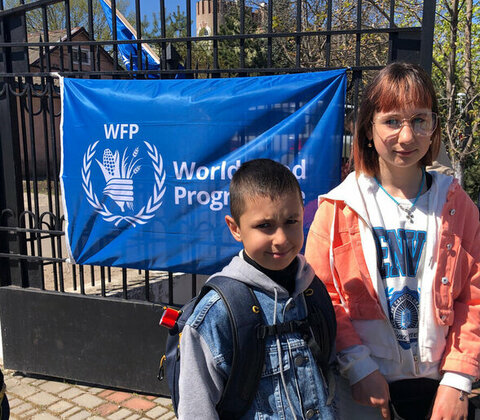
But against all odds, the couple's children – Egor, aged 12, and 7-year-old Ilia – still do their school work. The boys say they miss their home and everything it means to them – their friends, their memories and their lives. “We left everything and just ran for our lives,” says Liubov.
“We know the boys are suffering. They keep asking what is going to happen next, and if we are going to go back home," she says. “I’m explaining to them that we should stick together, we will overcome it, and the war will not last forever. Eventually, it will end.”
Liubov adds she and Olexander cannot lie to the children or tell them they know when they will return home. Like millions of Ukrainians, they are living with uncertainty every day. She adds: “I want this to be just a nightmare. I want to wake up in our home.”

